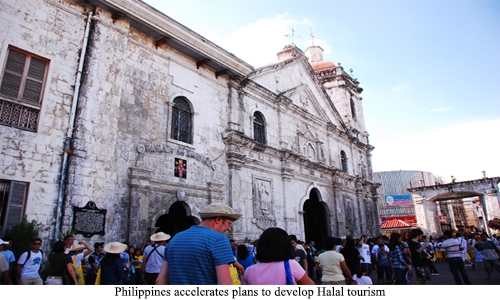Now Philippines goes big on 'Halal' tourism
The Philippines is accelerating its plans to position itself as a preferred destinations for Muslim tourists.
The Philippine Department of Tourism (PDOT) has unveiled a series of initiatives as part of a major drive to create a long-term infrastructure across the country to diversify its visitor arrivals by attracting Muslim visitors- especially from the neighbouring Asean region and the Middle East.
It has now partnered with CrescentRating, a company into Halal travel, to help build capabilities and resources as well as launch a destination marketing campaign to meet its objectives.
The relationship will see the PDOT embark on a series of activities to increase awareness of the availability of Halal food, mosques, and other Muslim-friendly holiday experiences and facilities in the Philippines.
The Muslim travel market is now widely recognised as a key growth tourism sector projected to be worth $200 billion by 2020.
“The Philippines receives close to 566,000 visitors from the Middle East, parts of Asean, as well as India. This forms our base market to extend Halal services and to move forward. Halal is not only a religious matter, but a nation’s concern. “
“Improving the Halal industry in our country will not only serve to advance the lives of Muslim Filipinos and attract more tourists, but it could also help spur growth in the Philippine economy,” secretary Ramon R. Jimenez, Jr. of the Philippine Department of Tourism (PDOT) said.
Tourism Philippines said this new drive to attract inbound Muslim tourists formed a key strand on its long-term strategy to maximize its economic growth in the halal tourism industry. The initial focus will be on developing services in Manila, Davao, Cebu, and Boracay.
The Philippines is a Southeast Asian country composed of more than 7,000 islands, offering a unique travel experience from its waterfront promenade to centuries-old Chinatown.
Related Posts

